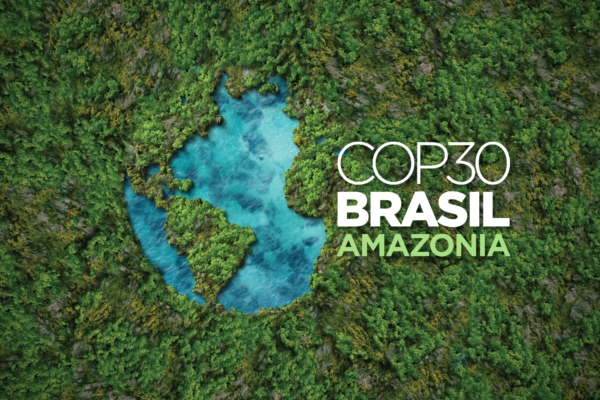COP30 and Climate Law and Governance Day

COP30* opened in Belém, Brazil, at the mouth of the Amazon River, yesterday (10 November) with the agenda adopted at the first sitting and an early whole-delegation “stocktake” called for mid-week. The Presidency’s framing is implementation, inclusion and innovation. Day 1 outcomes centred on delivery, including the Loss and Damage fund and adaptation support for low- and middle-income economies; the technology track also launched the Green Digital Action Hub and an AI Climate Institute. The pace reflects pressure from developing-country groups that pushed for the fast agenda agreement and a 48-hour progress review to curb procedural stalling.
In parallel, climate adaptation has moved up the agenda, with parties due to agree indicators to track resilience outcomes. The ICJ’s 2025 advisory opinion, affirming states’ duties under general international law to prevent transboundary climate harm and treating 1.5°C as a binding benchmark, is expected to feature in negotiating dynamics (and subsequent litigation strategies).
The COP Presidency has published an extensive “Thematic Days” programme linking negotiations to delivery across energy, finance, nature, food systems and justice, while UN Environment Programme has issued a COP30 factsheet series to brief negotiators and observers. Of particular interest are its factsheets on:
- Buildings and Construction (juiciest titbit: Building regulations/codes aligned with net zero pathways are the most effective regulatory tool for curbing operational emissions and increasing climate resilience).
- Integrated Energy Systems (juiciest titbit: Local governments are central to enabling system flexibility and resilience).
- Baku- Belém finance roadmap (juiciest titbit: Building regulations/codes aligned with net zero pathways are the most effective regulatory tool for curbing operational emissions and increasing climate resilience).
- Food Waste and (juiciest titbit: Halving global food waste by 2030 can deliver up to 7% reduction in methane emissions and directly support the Global Methane Pledge), and
- National Adaptation Plans (juiciest titbit: The earlier that adaptation planning can take place, the more cost-effective the action will be).
Other resources: The official COP30 “Schedule of events” indicates those with a public webcast. The COP30 Presidency site posts nightly summaries and Action Agenda materials. If you want to track the negotiation of the more than 100 separate agreements over which haggling will take place, then see CarbonBrief’s exceptions Interactive tracker.
Finally (for now), the main law side-event at COP30, Climate Law and Governance Day, runs wholly online on Friday 14 November 2025, online 08:30–18:30 BRT (11:30–21:30 UK). Registration is open and sessions cover: Operationalising the Paris Agreement at 10; Scaling Up National Climate Ambition and Action through Law and Governance; Advancing Climate Justice and Deploying Law and Legal Instruments for Investing in Just Transition. Estelle Dehon KC will speak in the final plenary session.
*Are you asking “What does COP stand for again?” Then watch this space for the Cornerstone Climate Guide to Key Concepts and Definitions in climate change, which we’ll release during the two weeks of this COP. As a sneak preview, here is the entry for “COP”:
COP OR THE CONFERENCE OF THE PARTIES
Is the annual United Nations conference dedicated to climate change and organised under the UN Framework Convention on Climate
Change (UNFCCC) since 1995. At the 21st COP, or COP21, which took place in 2015, the Paris Agreement was signed. COP30 took place in Brazil in 2025.

